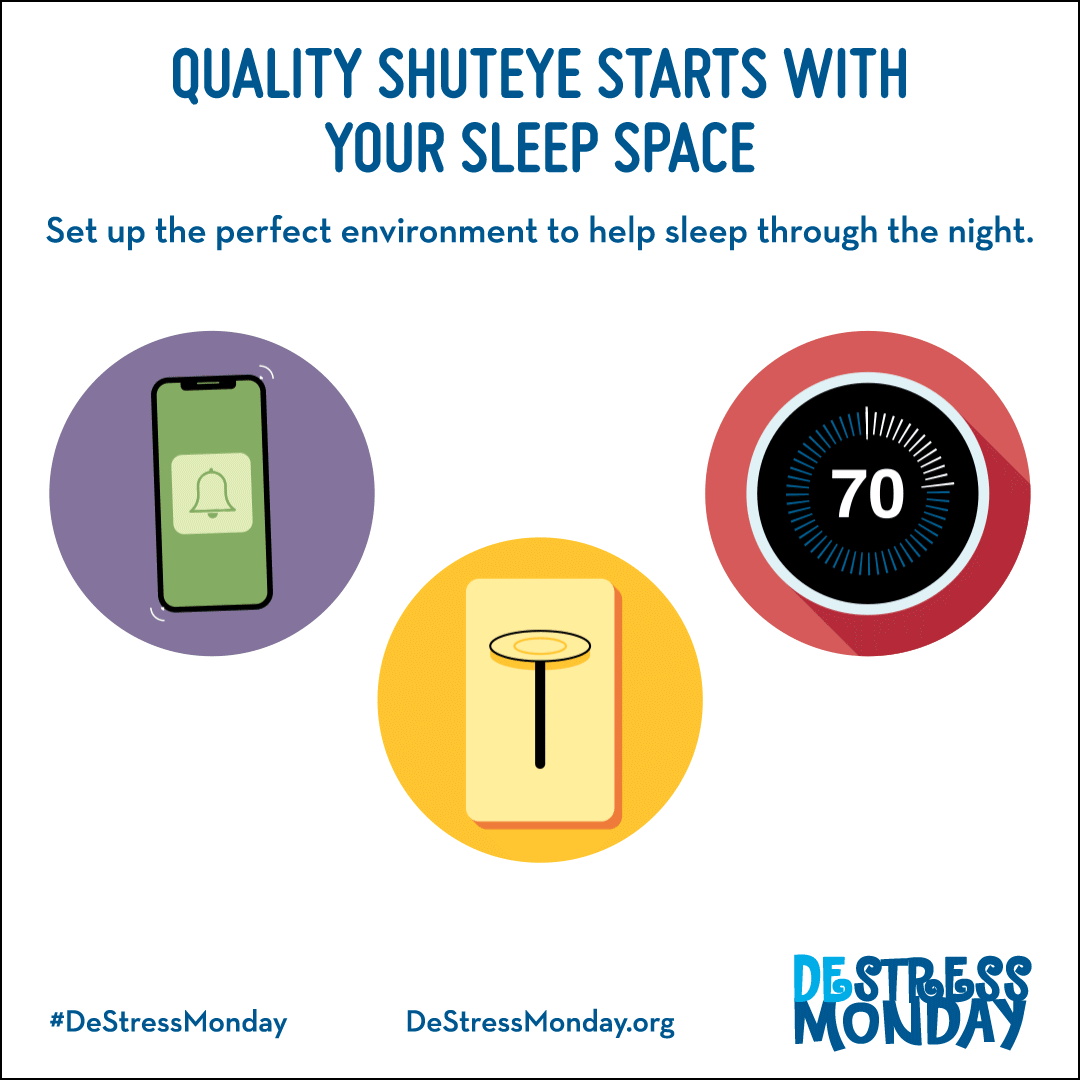Are you tired of tossing and turning at night, unable to escape the clutches of stress even in your dreams? Well, fret no more! In this article, we will delve into the secrets of creating a stress-free sleep environment that will have you dozing off peacefully in no time. So, grab your cozy blanket, fluff up those pillows, and get ready to transform your bedroom into a serene sanctuary for rest and relaxation.
When it comes to achieving a stress-free sleep environment, the key lies in setting the right mood. Picture this: soft, warm lighting casting a gentle glow, soothing sounds filling the air, and a scent of tranquility enveloping the room. Sounds dreamy, doesn’t it? Well, it’s time to turn that dream into a reality! By optimizing your bedroom for a peaceful slumber, you can bid farewell to restless nights and hello to blissful sleep. From selecting the perfect mattress and pillows to creating an ambiance that promotes relaxation, we’ve got you covered. So, let’s dive in and uncover the secrets to crafting the ultimate stress-free sleep environment.
How to Create a Stress-Free Sleep Environment:
- Keep your bedroom dark by using blackout curtains or an eye mask.
- Use white noise or a sound machine to drown out any disruptive noises.
- Ensure your mattress and pillows are comfortable and supportive.
- Remove electronics from the bedroom to minimize distractions.
- Create a calming bedtime routine, such as reading or taking a warm bath.
- Keep the room at a cool temperature for optimal sleep.
- Use lavender essential oil or a calming scent to promote relaxation.
Creating a Stress-Free Sleep Environment: Your Ultimate Guide
Creating a stress-free sleep environment is essential for improving the quality of your rest and overall well-being. When you create a calming and soothing atmosphere in your bedroom, it can help you unwind, relax, and achieve a deep, restorative sleep. In this article, we will explore various strategies and tips to help you transform your bedroom into a stress-free sanctuary that promotes relaxation and rejuvenation.
1. Declutter and Organize Your Space
The first step in creating a stress-free sleep environment is to declutter and organize your space. A cluttered bedroom can lead to a cluttered mind, making it difficult to relax and unwind. Take the time to clean up any unnecessary items, organize your belongings, and create a sense of order in your bedroom. Remove any distractions, such as electronics or work-related items, and create a serene and peaceful space dedicated solely to sleep.
Benefits of a Decluttered Bedroom
A decluttered bedroom offers numerous benefits for your sleep and overall well-being. When your space is organized and free of unnecessary items, it promotes a sense of calm and tranquility. You’ll be able to easily find what you need and avoid the stress of searching for misplaced items. Additionally, a clutter-free bedroom can help reduce anxiety and promote relaxation, allowing you to fall asleep faster and enjoy a more restful night’s sleep.
Tips for Decluttering and Organizing
To declutter and organize your bedroom effectively, follow these tips:
1. Start small: Begin with one area or category at a time, such as your nightstand or closet, to avoid feeling overwhelmed.
2. Sort and categorize: Separate your belongings into categories, such as clothes, books, and personal items. Decide what to keep, donate, or discard.
3. Create storage solutions: Invest in storage containers, baskets, or shelves to keep your belongings organized and easily accessible.
4. Maintain a regular cleaning routine: Dedicate a few minutes each day to tidying up your bedroom and preventing clutter from accumulating.
By decluttering and organizing your space, you’ll create a peaceful and inviting environment that promotes relaxation and restful sleep.
2. Choose Calming Colors and Soft Lighting
The colors and lighting in your bedroom play a significant role in creating a stress-free sleep environment. Opt for calming colors, such as soft blues, soothing greens, or neutral tones, that promote relaxation and tranquility. These colors can help create a sense of serenity and calmness, making it easier for you to unwind and prepare for sleep. Additionally, consider incorporating soft lighting, such as dimmable lamps or warm-toned bulbs, to create a cozy and peaceful ambiance in your bedroom.
The Impact of Colors on Sleep
Colors have a profound impact on our emotions and can significantly affect our sleep quality. Cool colors, like blues and greens, are known to have a calming effect on the mind and body, making them ideal for promoting relaxation and sleep. On the other hand, vibrant and bold colors, such as reds or oranges, can stimulate the senses and hinder sleep. When choosing colors for your bedroom, prioritize those that evoke a sense of tranquility and serenity.
Creating Soft Lighting
Soft lighting is essential for creating a relaxing sleep environment. Harsh, bright lights can disrupt your body’s natural sleep-wake cycle and make it challenging to wind down. Instead, opt for soft, warm lighting that mimics the natural light of sunset. Consider using bedside lamps with dimmer switches or installing warm-toned bulbs to create a cozy and inviting atmosphere. This gentle lighting will signal to your body that it’s time to relax and prepare for sleep.
In the next section, we will explore the benefits of incorporating nature into your sleep environment and the various ways you can do so.
Key Takeaways: How to Create a Stress-Free Sleep Environment
- Keep your bedroom tidy and clutter-free.
- Use calming colors and soft lighting in your bedroom.
- Invest in a comfortable mattress and pillows.
- Create a relaxing bedtime routine.
- Minimize noise and distractions in your sleep environment.
Frequently Asked Questions
What are some tips for creating a stress-free sleep environment?
Creating a stress-free sleep environment is essential for getting a good night’s rest. Here are some tips to help you create the perfect sleep sanctuary:
1. Keep your bedroom cool and dark: Make sure the temperature in your bedroom is comfortable and use blackout curtains or an eye mask to block out any unwanted light.
2. Declutter your space: A cluttered bedroom can contribute to feelings of stress and anxiety. Take the time to organize and tidy up your space to create a calming atmosphere.
Why is it important to have a comfortable mattress and pillow?
Having a comfortable mattress and pillow is crucial for a good night’s sleep. Here’s why:
1. Proper support: A quality mattress and pillow provide the necessary support for your body, helping to align your spine and alleviate any aches or discomfort.
2. Enhanced comfort: The right mattress and pillow can make a significant difference in your overall comfort level, allowing you to relax and fall asleep more easily.
How can I reduce noise in my sleep environment?
Noise can be a major disruptor when it comes to getting quality sleep. Here are some ways to reduce noise in your sleep environment:
1. Use earplugs or white noise machines: These can help block out unwanted noise and create a more peaceful atmosphere for sleep.
2. Soundproof your bedroom: Consider adding soundproofing materials to your walls, windows, or doors to minimize outside noise.
What role does lighting play in creating a stress-free sleep environment?
The lighting in your sleep environment can have a significant impact on your ability to relax and fall asleep. Here’s how to optimize your lighting:
1. Use dimmers or soft lighting: Harsh, bright lights can be stimulating and interfere with your natural sleep-wake cycle. Opt for softer, dimmed lighting in the evening to signal to your body that it’s time to wind down.
2. Limit exposure to blue light: Blue light emitted by electronic devices can disrupt your sleep. Avoid using screens for at least an hour before bedtime, or use blue light-blocking glasses to minimize its effects.
Are there any specific scents or aromas that can promote a stress-free sleep environment?
Aromatherapy can be a powerful tool for creating a calming sleep environment. Here are some scents that are known to promote relaxation:
1. Lavender: Lavender has been shown to reduce anxiety and promote better sleep. Consider using lavender essential oils or a lavender-scented pillow spray in your bedroom.
2. Chamomile: Chamomile has soothing properties that can help calm the mind and prepare you for sleep. Try using chamomile-scented candles or incorporating chamomile tea into your bedtime routine.
How to end stress, unhappiness and anxiety to live in a beautiful state | Preetha ji | TEDxKC
Final Summary: Creating Your Stress-Free Sleep Haven
Now that you have learned about the importance of a stress-free sleep environment and how to create one, it’s time to put your newfound knowledge into action. By implementing the tips and strategies discussed in this article, you can transform your bedroom into a peaceful sanctuary that promotes deep and restful sleep.
Remember, optimizing your sleep environment is not just about the physical aspects like lighting, temperature, and noise. It’s also about cultivating a sense of calm and relaxation. Consider incorporating soothing scents, such as lavender, or playing soft, calming music to further enhance your sleep environment.
By prioritizing your sleep and creating a stress-free haven, you are investing in your overall well-being. Good sleep has numerous benefits, including improved mood, enhanced cognitive function, and increased productivity. So, take the time to make your sleep environment a priority and enjoy the rejuvenating and restorative sleep you deserve.
Remember, a stress-free sleep environment is within your reach. Apply the tips and techniques you’ve learned, and don’t be afraid to experiment and personalize your space. With a little effort and creativity, you can create the perfect sleep haven that will have you waking up refreshed and ready to take on the day. Sweet dreams!




